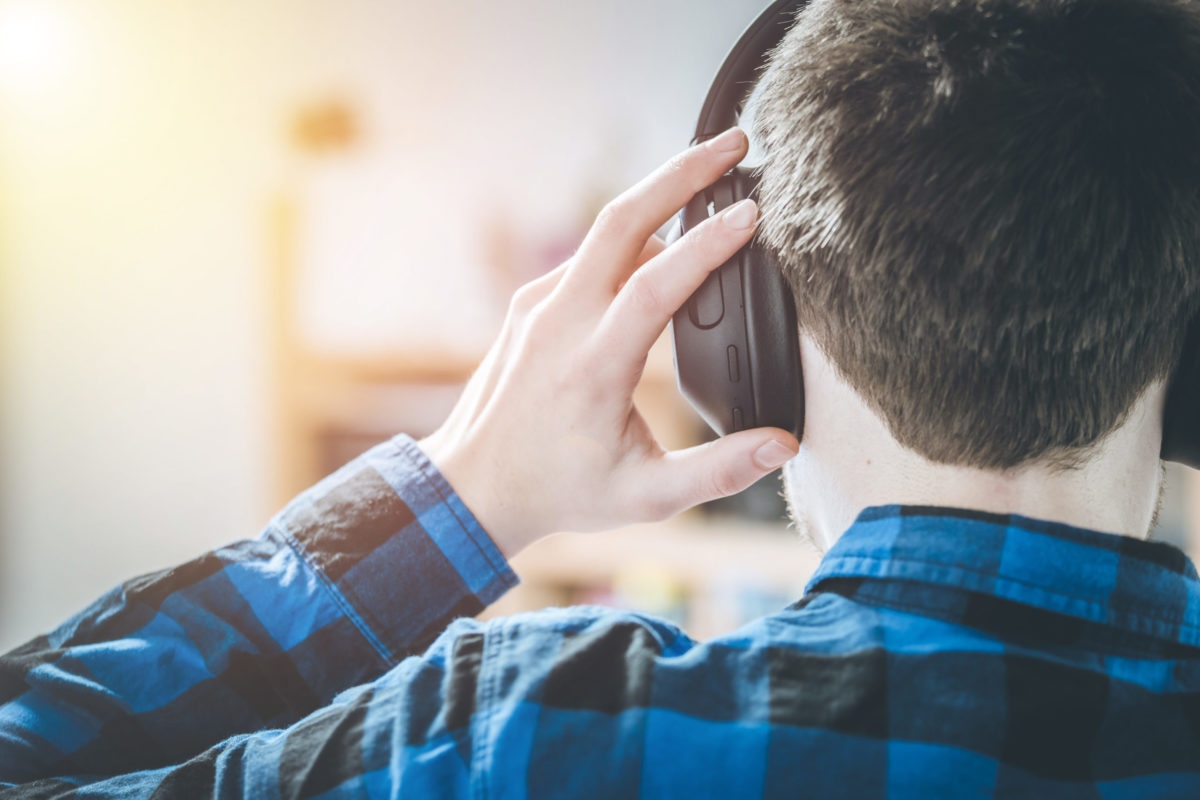Music moves us in so many ways.
We might tap a foot, or clap along, or stand up and dance. Sometimes, music makes us cry, sometimes it calms us, and sometimes it inspires us. Music can also help us feel better, perform better at work or school and sleep better.
Chad McDaniel, a behavioral health expert with BlueCross BlueShield of Tennessee, explains why you might want to turn the volume up a little when you need a boost.
How music benefits us
Chad McDaniel: Deliberately adding music into our routines can have a positive impact on our moods and our well-being. For example, when we’re stressed, listening to certain kinds of music can help us relax. I would recommend that someone with anxiety try listening to slower music to help them feel calmer. Meanwhile, athletes often use high-energy music to pump themselves up before a big game or race, and you can take a cue from them and do the same.
Plus, using music to boost your mood is:
- Safe
- Non-invasive
- No drug interactions
- No side effects
- Widely available
- Easily customized
You can try using music to boost your mood any time you want. And if you happen to be taking any kind of mood-boosting medication, you don’t need to stop taking it. You can just add music as an adjunct to your medication.
How musical therapy might help you
Chad McDaniel: Some people struggling with anxiety or depression find that the structure of a formal music therapy program is helpful. So, if you’re struggling with anxiety or depression or a number of other mental health conditions, music therapy may be able to help you, too.
According to the American Music Therapy Association (AMTA), music therapy is the “clinical and evidence-based use of music interventions to accomplish individualized goals within a therapeutic relationship by a credentialed professional who has completed an approved music therapy program.” In other words, a trained professional works with you to incorporate musical interventions to help you feel better.
Your therapist can help you set some goals for therapy, based on your personal history, and then steer you toward musical activities that can help you reach those goals. During a music therapy session, your music therapist might suggest listening to certain songs and discussing the lyrics, moving to music, singing, writing or composing a piece of music, or playing an instrument.
Anyone can benefit from music therapy: children, teens, and adults of all ages. It’s also effective in helping people with physical or chronic pain, people with a history of trauma, and people struggling with substance abuse. Music therapy is very effective when provided to people with advanced disease who are receiving palliative care. There’s even research that shows that music therapy helps improve cognitive function in people with dementia. And of course, some pregnant people find that listening to music during childbirth helps them stay focused and help them manage their pain.
Do-it-yourself music therapy
Chad McDaniel: You don’t have to participate in a structured music therapy program or sessions with a professional music therapist to still benefit from incorporating music into your life. Here are some more informal ways that you may be able to boost your mood with music:
- Find ways to play music that you enjoy when you need a lift. For example, listen to music while you’re cooking dinner, driving your car, hiking, or taking a walk.
- Sort through your old CDs, cassette tapes, or records (if you still have them!). Pick out a few favorite songs or albums and listen to them again.
- Scroll through music streaming services like Pandora, Spotify, or Apple Music and look for songs or artists you recognize.
- Ask friends for recommendations for music that energizes or calms them down and give those songs a listen.
- If you used to play an instrument, pull it out and give it a try. Don’t worry about making mistakes. Just try to enjoy the process of making sounds.
- If you currently play an instrument, sit down and play your favorite songs or selections of music.
5 ways to use music therapy at home.
Choosing music that helps you
Chad McDaniel: One thing to consider: be mindful of the kind of music you choose. No one is saying that you have to forego any particular type of music, but some music is more effective than others for boosting your mood and improving your mental clarity.
For example, some research suggests that listening to grunge rock music is more likely to increase feelings of sadness, fatigue and tension and decrease mental clarity and relaxation than listening to some other kinds of music.
Additionally, other research shows that some people are better than others at recognizing the impact that music makes on their mood—and choosing music that actually benefits their mood. You may gravitate toward certain songs when you’re feeling low, but you might not realize that those songs aren’t really making you feel any better. If you’re depressed and you struggle to find music that helps you feel better, you might ask for some help.
Get more information about specific health terms, topics and conditions to better manage your health on bcbst.com. BlueCross BlueShield of Tennessee members can access wellness-related discounts on fitness products, gym memberships, healthy eating and more through Blue365®. BCBST members can also find tools and resources to help improve health and well-being by logging into BlueAccess and going to the Managing Your Health tab.


